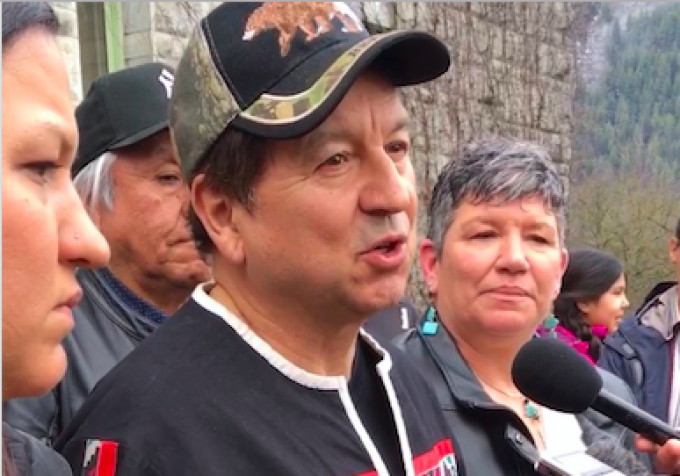Supreme Court of Canada to hear hunting rights case of Rick Desautel
The Supreme Court of Canada said it will hear the case involving Sinixt First Nation, Rodney Cawston, the Chairman of the Confederated Tribes of the Colville, said in a media release Thursday.
Cawston said the court has granted leave to appeal in the Rick Desautel hunting case, in which three lower courts have held that Desautel, and by extension all sn̓ ʕay̓ckstx (Sinixt/Arrow Lakes) people, including sn̓ ʕay̓ckstx or Arrow Lakes members of the CCT, have the right to hunt in their traditional territory in Canada.
“We welcome the opportunity to have this historic case heard by Canada’s highest court,” Cawston said in the release.
“We are confident that the Supreme Court will, like the lower courts, confirm the truth of our history and identity, and that the burden of the false declaration of “extinction”, which our people carried for far too long, will be lifted.”
The hearing of the appeal by the Supreme Court is expected to be in the spring of 2020 in Ottawa, with a decision to follow some months later.
Sinixt First Nation or Lakes Tribe is one of 12 represented by the Confederated Tribes of the Colville. Since time immemorial, the Sinixt occupied a sizable territory in what is now British Columbia and moved back and forth across what they view as an artificial boundary between the United States (U.S.) and Canada.
When the border was established in 1846, Sinixt people on the “U.S. side” encountered increasing difficulties in exercising their rights north of the border, including the passage of a law in 1896 that made it illegal to hunt in their Canadian territory.
Ultimately, many Sinixt were forced to settle south of the border and were declared “extinct” in Canada in 1956.
Desautel said he looks forward to the Supreme Court confirming that my identity as a Sinixt man cannot be questioned when I cross the border to hunt in the traditional territory of my ancestors.
“I will become an old man before this case is finished, but I will die a happy one, knowing that I will have played a role in taking away the pain of extinction from my grandchildren and the future generations to come,” Desautel said in the release. “PútiɁ kw u aláɁ (we are still here).”
Mark Underhill, lead counsel for Desautel, said in the release at issue in this appeal is whether aboriginal identity can be effectively erased by the imposition of colonial laws, government policy, or an international border.
“This case will have important implications for all indigenous peoples on both sides of the border,” Underhill explained.
Chairman Cawston said this journey to preserve the rights of our ancestors for future generations will continue, and in the interim, we intend to carry on the Sinixt journey towards reconciliation.
“We will continue to share our traditional knowledge and rich culture with the broader community now living within sn̓ ʕ ̓ay̓ckstx qwam̓ qwm̓ t iʔ tm̓ xwúlaʔxws (our beautiful territory) in Canada, along with our First Nations neighbours, amongst which many sn̓ ʕay̓ckstx descendants reside,” Chairman Cawston said.


























